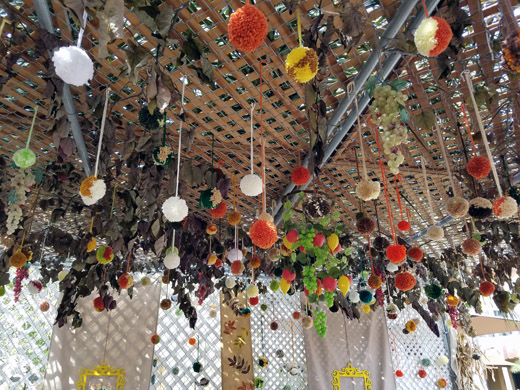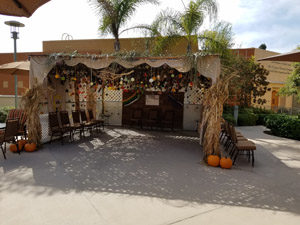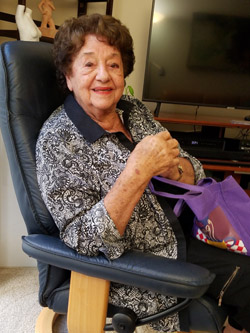
By Sheldon Foster Merel


ENCINITAS, California — Three years ago, Claire Weiner, a resident at Seacrest Village, decided to start a creative activity for women to use their hands, eyes, and brains. By chance, she met Arlene Schapnick , the Director of the North County Knitting Guild, and learned about its program to stimulate, motivate, and inspire people to knit with yarn. That idea clicked, and Claire
organized a group of about 15 women to get started. The Guild gives them yarn and distributes their creations to worthy recipients on behalf of Seacrest Knitters.
In the past three years , the Seacrest Knitters made and donated over 986 babies’ hats, shawls, scarves, mittens, and blankets for folks in wheel chairs, military families, children in hospitals, and patients at the Memory Center.

A few months before this summer, the idea of hanging small Pom Poms made with yarn instead of the usual fruit and vegetables from the Seacrest Village sukkah was suggested by Arlene Schapnick. A fine idea, and voila, the Seacrest women went to work and made 356 Pom Poms to hang in the outdoor Sukkah. The Seacrest staff built the Sukkah and the women decorated it .
The Seacrest Knitting Group was organized by Claire Weiner, who moved to the Seacrest Village Retirement Facility five years ago from Santa Monica. She worked 20 years for a government agency, and after retiring continued to volunteer for her Hadassah chapter, congregation , and favorite charities. A few years after her husband died, her son urged her to move nearer to him and his family in Encinitas. Claire moved into a lovely apartment at Seacrest Village, and in no time became a greeter for new residents, and enjoys assisting the rabbi at Shabbat services.
A sukkah is a reminder of temporary huts our ancestors built and lived in while gathering the harvest. The Festival of Sukkot is also called the Feast of Tabernacles ,(Festival of Booths) and Chag HaSukkot . Sukkot lasts for seven days in Israel and eight in the Diaspora, and begins five evenings after Yom Kippur (the Day of Atonement). Some Jewish families build small huts (sukkahs) in their back yards, hang fruits and vegetables from its frail roof, eat meals, and may even sleep in them during the festival.
Special thanks goes to Claire Weiner and her assistants Ruth Siegel, Joan Rimer, Muriel Berger, Jerry Frankel, and Barbara Appleby for continuing the fine work of the Seacrest Women’s Knitting Group.
*
Merel is cantor emeritus of Congregation Beth Israel of San Diego. He may be contacted via sheldon.merel@sdjewishworld.com